Provincial Election is Tuesday, October 3, So Get Out and Vote
Manitoba Beef Producers is reminding producers that the provincial election is next Tuesday. In recent editions of the MBP E-Newsletter we have provided background information to help producers talk to their candidates about issues affecting the beef sector. MBP has also prepared a rundown of campaign commitments made by the various parties that pertain directly or indirectly to the agriculture sector. This information is being repeated in the latter half of this edition of the e-newsletter.

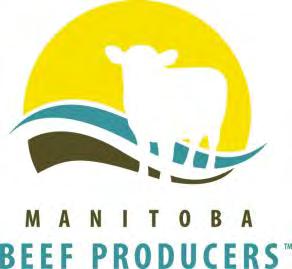
For complete details on all aspects of the party platforms, go to the following websites:


• Green Party of Manitoba www.greenparty.mb.ca
• Manitoba Liberal Party www.manitobaliberals.ca
• New Democratic Party of Manitoba www.mbndp.ca
• Progressive Conservative Party of Manitoba www.pcmanitoba.com
Advance Voting for Provincial Election Underway Until Sept. 30
(September 27, 2023 Elections Manitoba News Release) Manitoba voters can still vote in advance until Saturday, Sept. 30. After four days of advance voting, approximately 107,149 Manitobans have cast their ballots in the 2023 provincial general election.
Manitobans can vote at any advance polling place in the province.

Advance voting locations are open from 8 a.m. to 8 p.m. Monday to Saturday and noon to 6 p.m. Sunday, with some exceptions. All locations and hours can be found on Elections Manitoba’s website: www.electionsmanitoba.ca/en/Voting/Advance_Voting.
Manitobans who are not registered can still register at the poll when they vote.
All voters require ID to vote, either one piece of government-issued photo ID with their address or two other pieces of identification. There are many options. A complete list of acceptable ID is available on the Elections Manitoba website.
Voters are encouraged to bring their voter information card, which can be used as one piece of ID. Election day is Tuesday, Oct. 3.
continued on page 4
E-Newsletter
dsfsfa An update from MBP September 29, 2023 mbbeef.ca
September
Summer Intern
Location: Calgary/ Hybrid
Overview:
The Canadian Cattle Association (CCA) is the national voice of Canada’s 60,000 beef producers. Founded by producers and led by a producer-elected Board, CCA works to address issues of concern to Canada’s beef producers.

The Canadian Roundtable for Sustainable Beef (CRSB) is a division of CCA. The CRSB is a collaborative, multi-stakeholder initiative focused on advancing environmental, social and economic sustainability in the Canadian beef industry. It has over 100 members representing the beef value chain and beyond.
The Beef Cattle Research Council (BCRC) is Canada’s industry-led funding agency for beef, cattle and forage research. The BCRC is committed to delivering and supporting initiatives that effectively accelerate the development and uptake of research findings and outcomes by industry.
CCA, CRSB and BCRC are each looking for a talented, self-motivated individual to participate in our CCA Summer Intern Program. There are a total of three (3) internships available.
Job Description:
These internship positions provide a unique opportunity for students interested in the Canadian beef industry across a broad range of topics including (but not limited to) public policy, research, sustainability, communications, and advocacy. Interns will have the opportunity to engage directly with CCA and its divisions’ staff, Board Members, Councils, and key industry stakeholders to help overcome challenges and advance priorities important to the Canadian beef industry Students are also encouraged to propose summer projects to CCA, CRSB, and BCRC for consideration.
CCA internship
Responsibilities:
• Assist with youth program delivery (Canadian Cattle Young Leaders & Canadian Cattle Youth Council), including activities at the Canadian Beef Industry Conference
• Assist in communications of advocacy efforts and policy enactment (social media, stakeholder outreach, media management, website maintenance, etc.)
• Assist with the development of communication updates to member organizations
• Observe association meetings (board, committees, working groups)
• Perform other duties as assigned to advance CCA activities
Head Office #180, 6815 – 8th Street NE Calgary, Alberta T2E 7H7
(403) 275-8558 Email: contact@cattle.ca Ottawa Office #1101, 350 Sparks St. Ottawa, Ontario K1R 7S8
(613) 233-9375
Phone:
Phone:
www.cattle.ca
The Canadian Cattle Association is the national voice for Canada’s beef cattle industry representing 60,000 beef farms and feedlots
2023
CRSB internship
Responsibilities:
• Support social media and communication channels with content and delivery
• Support website updates
• Assist with event preparation and delivery
• Assist with administrative tasks
• Perform other duties as assigned
BCRC internship
Responsibilities:
• Support BCRC knowledge and technology transfer efforts including website and social media content development
• Assist with event preparation and development including BovInnovation at the 2024 Canadian Beef Industry Conference
• Assist with content development for BCRC’s regular publications
• Support scientific and special topic reviews in a wide variety of areas and assist in BCRC’s research evaluation processes
• Perform other duties as assigned
Qualifications:
• Applicants must be enrolled in undergraduate, graduate, or post-graduate studies
• Applicants should be enrolled in an agriculture or associated program, have beef production experience, and/or an expressed interest in pursuing a career in the Canadian beef industry
• Must have a minimum GPA of 3.0 and be available for the duration of the internship
• Must have excellent research, writing, and communication skills
• Must be able to work in CCA’s Calgary office
Please send cover letters and resumes to Sherin at schopra@cattle.ca with the subject line: CCA Summer Intern and indicate on your cover letter which division’s internship (or divisions’ internships) you are interested in Candidates can apply to more than one internship. The deadline for applications is October 13, 2023
We thank all candidates for their interest; however, only those selected for an interview will be contacted.
Canadian Cattle Association is an Equal Opportunity Employer and Prohibits Discrimination and Harassment of Any Kind: CCA is committed to the principle of equal employment opportunity for all employees and to providing employees with a work environment free of discrimination and harassment. All employment decisions at CCA are based on business needs, job requirements and individual qualifications, without regard to race, colour, religion or belief, national, social or ethnic origin, sex (including pregnancy), age, physical, mental or sensory disability, sexual orientation, gender identity and/or expression, marital, civil union or domestic partnership status, past or present military service, family medical history or genetic information, family or parental status, or any other status protected by the laws or regulations in Canada.
Provincial election
– continued from page 1
Other voting opportunities include:
Voting on Election Day
Voters can vote at any poll in their electoral division on election day, Oct. 3.
Voters can find their suggested election day and advance polling places on their voter information card or on the Elections Manitoba website. All polling locations and hours are available at the Elections Manitoba website.
Absentee Voting
Voters who will be away on election day and during advance voting can apply for absentee voting. Voters can apply online or at the local election office. The deadline to apply is Sept. 30 at 8 p.m. but voters are encouraged to apply early so they have enough time to receive and return their ballot.
Homebound Voting
Those unable to go in person to a polling place due to a disability may apply to vote at home. Caregivers may also apply to vote at home. Applications are available online or from the local election office. Applications must be received at the local election office by 8 p.m. on Oct. 2.
Voting With Assistance
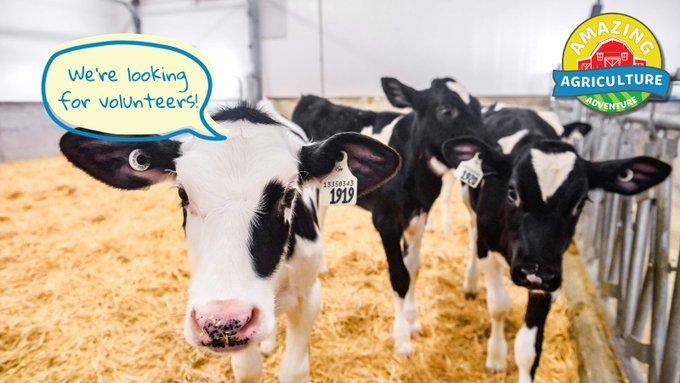
In addition to homebound voting, Elections Manitoba provides several services to assist voters:
•Voters may request a language or sign language interpreter. Voters should contact their local election office as early as possible to request this service.
•Polling places have braille ballot templates.
•Voters may bring someone 16 years or older to help them vote or ask a voting officer for help.
•Voters may use their own assistive devices, including smart phone apps, to vote.
•If a voter is unable to go inside the polling place because of a disability, voters can vote from their vehicle.
Voters can find information about where to vote, ID requirements, accessible voting, local election office locations and more at www.electionsmanitoba.ca or https://electionsmanitoba.ca/en/Voting/MyVoti ngInfo
You can also reach Elections Manitoba toll free at 1-866-628-6837
Agriculture in the ClassroomManitoba need volunteers for Amazing Agriculture Adventure –Animals, October 4-6.
Your volunteer experience gives you the chance to network, along with perks like free coffee and lunch — but most of all the reward of feeding young minds. Click to learn more and sign-up!
Advancing Beef Industry Concerns During the October 3 Provincial Election
Manitoba Beef Producers (MBP) encourages producers to speak to their candidates about where they stand on issues affecting the prosperity of the beef industry.
Not sure what kinds of topics to raise? The following is a very brief rundown of some issues of importance to our industry on which MBP advocates with provincial and federal officials. While this article is focused on the provincial election, in some cases both levels of governments are involved in addressing these issues and it can be useful to remind your Member of Parliament about them too, along with the MLA candidates.
Water Challenges
Water quantity and quality issues have a serious impact on the ability to produce beef. The challenges include drought conditions, leading to the need to drill new wells or to rehabilitate reservoirs. MBP advocates for continued costshared investments in on-farm water source development projects, such as through the Sustainable Canadian Agricultural Partnership and other initiatives.
Repeated flood events have also contributed to the downsizing of Manitoba’s beef herd. Both the federal and provincial governments have made commitments to flood infrastructure projects to help lessen risk of future damages, but progress has lagged on some. A key example is completion of the long-awaited Lake Manitoba and Lake St. Martin Outlet Channels project. MBP is asking both levels of government to work collaboratively to address outstanding concerns and to move this needed project forward as soon as possible.
Considerable natural infrastructure is being maintained by beef producers, including grasslands and wetlands. These ecosystem
services, which are a public good, include enhancing resilience against natural disasters like floods and droughts, providing habitat for many plant, animal, and insect species, storing carbon, and more. MBP is seeking government recognition of beef producers’ role in providing ecological goods and services.
Agricultural Crown Lands (ACL)
The use of ACL is essential to many producers. In recent years successive Manitoba agriculture ministers have made changes to the Crown lands program in areas such as lease lengths, unit transfers, the rental formula, auction processes, valuing improvements and more. MBP has done extensive advocacy work in this area, and while recent changes are addressing some of these concerns, MBP continues work on this file.
For example, the provincial has temporarily reduced forage lease rents through the 2025 production year. This is a very important first step as the steep and rapid increase in rental rates that took effect in 2020 proved financially taxing for lease holders. Factors such as droughts and floods, stiff competition for the use of private lands beef producers also need for haying and grazing, variations in ACL carrying capacity across the leases, predation pressure, and others have hit producers’ bottom lines, making the steep rate increase difficult to manage. The high rate of property taxes on ACL in Manitoba compared to other provinces is another concern.
To address these concerns, MBP has sought adjustments to the forage rental rate formula. It includes three variables: the average price of beef, the 3.5% calculated rate of return for private use of a public asset (which captures factors such as public good and land stewardship), and, the forage capacity of the
continued on pages 6-7
Advancing Beef Industry Concerns During the October 3 Provincial Election
land. MBP is seeking to have the 3.5% figure adjusted to better account for the ecosystem services producers provide in managing ACL.
MBP also restates its position that when calculating the rental rate, greater consideration must be given to the absence of informed access. Leaseholders recognize Manitobans’ right to access ACL for uses such as traditional use, hunting, food gathering, recreation, and others. Leaseholders carry the costs of improving ACL and maintaining public access to it. Unfortunately, some individuals entering ACL create challenges, such as environmental and infrastructure damage, biosecurity concerns, and endangering livestock. Informed access could help mitigate concerns like these and such policies exist in other Canadian jurisdictions.
Animal Health and Protection
Ensuring Canada’s beef industry is protected from foreign animal diseases such as foot and mouth disease (FMD) is a key priority. MBP, along with the Canadian and other industry associations advocated for governments to provide annual funding to create a Canadian FMD vaccine bank and this commitment was achieved in the 2023 federal budget. Provincial governments are being asked to cost share this initiative, so it is important that the Manitoba government provides funding not only for this initiative, but that it also makes investments in ongoing disease preparedness activities. This includes commitments to surveillance for diseases like bovine tuberculosis, and others. It also means ensuring there are enough resources in place to be able to swiftly respond to disease incursions should the need arise.
Predation Concerns
Wildlife predation on livestock is another key issue affecting our industry. MBP co-chairs the
Livestock Predation Protection Working Group (LPPWG). It includes reps from Manitoba Agriculture, Manitoba Agricultural Services Corporation, Natural Resources and Northern Development, Agriculture and Agri-Food Canada, Manitoba Sheep Association, and the Manitoba Trappers Association.
In 2020 MBP received provincial funding for the three-year pilot Manitoba Livestock Predation Prevention (LPPP) Project. Added funding is coming from the Manitoba Sheep Association. The three main project aspects include: On Farm Predation Risk Assessments; evaluating various Risk Management Practices (RMPs); and, communication about management practices that could help reduce risk. Project participants have implemented RMPs to test their effectiveness in reducing predation risk, such as game cameras, predator resistant pens, deadstock pens, solar foxlights, GPS collars, fladry wire, electronet, and veterinary assessments. The project is now entering its final stages, with a few more RMPs to be implemented this year, and project analysis and reporting to be completed. MBP continues to examine other programs and strategies to manage problem predators, including trapping. There will be continued discussions with governments as to next steps to help reduce predation risks. Ask your candidates where they stand on predation issues and what initiatives they would support to help reduce the risk of negative livestock-predator interactions.
Other Considerations
A whole host of other matters where the provincial government can be involved affect beef producers. These include the need for investments in building and maintaining infrastructure such as roads and bridges, as well as improving rural connectivity such as cell phone and internet services so critical to doing
Advancing Beef Industry Concerns During the October 3 Provincial Election
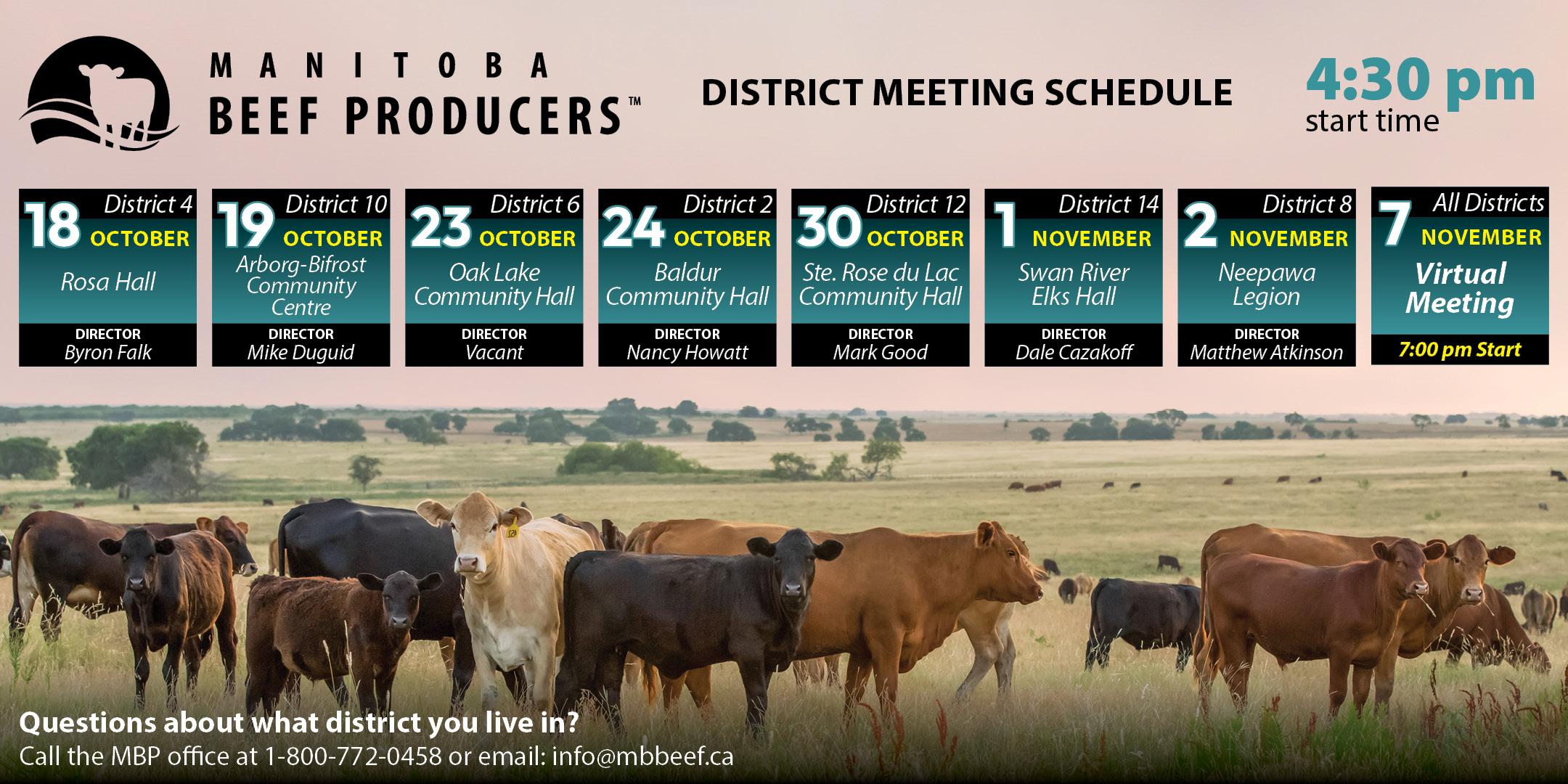
business on farms and ranches. Education property taxes are a considerable expense, and producers are seeking commitments to an equitable system for funding the education system that is not reliant on property taxes.

Labour supply is an ongoing concern in the agriculture sector and governments have a role to play in helping to address the gaps, be it through local education and training initiatives, recruiting workers from outside the province where needed, and helping to create an environment that encourages workers to remain in Manitoba. That includes ensuring there are strong communities where workers can have ready access to health care, education, child care, recreation, and other services they need. Rural Manitobans are also looking for strategies that will help reduce the risk of crime.
Ensuring beef producers have access to a robust and responsive suite of business risk management programs is also very important, whether that be mechanisms offered via AgriInsurance, AgriStability, Livestock Price Insurance, the Advance Payments Program or others. It is important that beef producers can access programs that help to place them on a level playing field with other commodities. These are just a few of the topics that you may wish to consider raising with your candidates during the election. It is important that candidates are well informed about agricultural production and how government policies can either encourage or hinder future growth in our sector.
"Family
is everything to our operation ... I don't honestly think that we would be doing what we're doing without the family dynamic." Amanda Hamilton-Seward, Amaglen Limousine, Darlingford
Updated List of Agriculture-Related and Other Commitments Made by Manitoba Political Parties re: the 2023 Election
The following is an overview of some of the election commitments by Manitoba political parties that may be of interest to producers. This is not an exhaustive list of commitments made across various areas, be it agriculture, health care, education, justice, the economy or others. Some have been announced publicly and some are identified in party platform documents on their respective websites.
For further details on the parties’ respective visions and commitments, go to the following sites:
• Green Party of Manitoba www.greenparty.mb.ca
• Manitoba Liberal Party www.manitobaliberals.ca
• New Democratic Party of Manitoba www.mbndp.ca
• Progressive Conservative Party of Manitoba www.pcmanitoba.com
Green Party of Manitoba Commitments
• One of this party’s cornerstone commitments is to fight the climate emergency. They state the party will work with transportation, agriculture, manufacturing, retail, and energy industries to:
o Reduce GHG emissions, and create jobs while providing incentives for adopting Electric Vehicles, improving EV charging network coverage particularly in rural and remote communities, electrifying existing bus fleets, electrifying agricultural equipment and exploring alternatives such as drone technology, and funding expanded bike lanes and other human-powered transport.
o Support the transition away from industrial animal agriculture and incentivize small-scale animal
producers and growing plants for human consumption.
• Provide support to new farmers, via direct government assistance toward new, smaller farms, ending the practice of giving big grants to already established profitable farms.
• Create a land bank to provide retiring farmers with new succession opportunities, and help make land available and affordable to new farmers.
• Reduce the financial burden of farmers by: providing support to new farmers; directing government assistance toward new, smaller farms, ending the practice of giving big grants to already established profitable farms; and creating a land bank to provide retiring farmers with new succession opportunities, and help make land available and affordable to new farmers.
• Increase financial opportunities for farmers by: diversifying market opportunities to help stabilize and balance agricultural commodity markets, reducing Manitoba’s dependence on exports to the US and China; working to open new provincial, regional and local market opportunities and new international markets which appreciate Manitoba quality; and, directing government procurement toward ‘Buy Manitoba’.
• Work with farmers to move away from greenhouse gas intensive agricultural practices by: encouraging the use of regenerative farming practices to reduce greenhouse gases, increase plant growth, and increase species diversity on pastures; providing transition programs to support farmers who wish to transition to organic and/or regenerative food production; encouraging and supporting the transition to energy independence on farms; and, encouraging clean energy production on farms, such as solar, wind, geothermal,
continued on pages 9-12
Updated List of Agriculture-Related and Other Commitments Made by Manitoba Political Parties re: the 2023 Election
small scale hydro energy, and energy storage capacity installations.
• Make education funding fair and transparent by funding education only through corporate and personal income taxes rather than partly through property taxes.
• Increase the availability and affordability of telecommunication services by ensuring that rural and Northern broadband includes local service providers, to increase competition and therefore the quality and affordability of phone and internet service.
Manitoba Liberal Party Commitments
• Create a new $300-million Green Fund to help Manitobans create new green jobs, reduce energy costs, and fight climate change through rewilding. Eligible projects under the Green Fund will include:
o funding for rewilding and the creation of wilderness/ecological corridors with restored natural forests, wetlands and wildlife habitat; and,
o working with producers to reduce high-intensity GhG efficiency programs to reduce the impact of agricultural greenhouse emissions, such as Nitrous Oxide (NO2).
• Work with First Nations, municipalities, farmers, and other stakeholders to increase the amount of protected areas in Manitoba to 30% by 2030.
• Set up a carbon credit system that will enable payments for farmers for ecological services and sustainable land stewardship.
• Make changes to the Basic Personal Exemption by offering income tax relief for low and middle-income earners. All Manitobans earning up to $120,000 will be eligible for income tax relief on a sliding
scale; for the 0.1% making $300,000 and up, the exemption would be zero.
• Re: property taxes, the Liberals will repeal 80% of the property tax rebate, and ensure the remaining rebates are progressive and protect the vulnerable.
• Will create a new “Debt Compromise Board” which will provide Manitoba businesses and farmers a forum where they can meet with their lender to find ways to restructure debts.
• Prioritize specific infrastructure projects, focused first on:
o Repairing highways, provincial roads, bridges and intersections that need immediate repair and upgrade as determined in consultation with Association of Manitoba Municipalities (AMM), while enhancing the role of Manitoba Transportation and Infrastructure in long-term strategic planning for the province;
o Working with communities, cellular providers and Manitoba Hydro Telecom to expand cellular service along transportation corridors while improving broadband internet to rural and northern Manitoba.
New Democratic Party Commitments
• Re: agricultural Crown lands
o We will give the next generation of producers a fighting chance by canceling many of the PCs’ changes to crown land leases, reinstating unit transfers, and making leases more affordable.
• Create a Premier’s Business and Jobs Council to bring together leaders from business, skilled trades, agriculture, Indigenous communities, labour and other sectors.
Updated List of Agriculture-Related and Other Commitments Made by Manitoba Political Parties re: the 2023 Election
• Increase our export sales for agriculture and manufacturing industries, and work to improve trade relations with America by appointing Gary Doer as an advisor on U.S. Trade.
• Work with the federal government to increase the number of immigrants that stay in Manitoba through the Manitoba Provincial Nominee Program with a focus on family reunification.
• Ensure that our agriculture and valueadded manufacturers stay strong with a competitive economic environment and that our agriculture programs respond to evolving market and environmental conditions.
• Reverse the PCs’ cuts to roads and maintenance and invest in snow clearing, gravel roads, ditches and culverts to keep families safe, protect communities from flooding, and create good Manitoba jobs.
• Offer a broad middle-class tax cut by indexing tax brackets and we’ll keep the 50% residential education property tax rebate – but we’ll take the politics out of it by simply removing the tax off your bill, saving you money each month.
• Get more people working in the skilled trades with more apprenticeships and training opportunities.
• Invest in highways, bridges, roads and maintenance; bring back 24 hour maintenance on highways.
• Keep the education property tax rebate at 50% for residential and farmers
• Ensure rural communities maintain local control over their schools and work with parents and educators to help rural students succeed
• Implement a universal nutrition program in every school across the province so no child goes to school hungry and every student can focus on learning
• Freeze hydro rates for one year to make life more affordable for families and small businesses
• Cut the gas tax to save people 14 cents a litre at the pump while inflation remains high
• Save rural families money by improving rural broadband and helping communities and Internet Service Providers connect to affordable high-quality cell service and broadband
• Save families money by expanding $10/day childcare to include school-age children on professional development days, holidays and the summer months
• Expand high-quality child care across the province by creating more spaces and building more centres in workplaces and communities
• Re: rural health care:
o bring more doctors, nurses and health care workers to rural communities; create ten new doctors training seats for medical students in Brandon to help address the rural doctor shortage
o restore and double the rural doctor recruitment fund
o shorter wait times for ambulances by hiring more paramedics and better cell service; hire 200 more paramedics to reduce wait times in an emergency for families in rural Manitoba
o train more nurses to work in rural and Northern Manitoba by creating a pathway for LPNs to become RNs without having to leave the community they call home
o more staff to keep rural health centres open; offer real incentives to allied health professionals, nurses and nurse practitioners to work in rural communities
Updated List of Agriculture-Related and Other Commitments Made by Manitoba Political Parties re: the 2023 Election
o health technology to connect families with the best specialists, and
o more PCH beds in rural Manitoba.
Progressive Conservative Party Commitments
• Re: agricultural Crown lands:
o a permanent 50-per-cent reduction on agricultural Crown lands rent
o fight the federal government to find a way to compensate lessees for improvements they made if the land is claimed through Treaty Land Entitlement. This protects a producer’s investment.
• Triple funding for Veterinary Service Districts, which maintain clinics across the province on behalf of veterinarians and the industry. This will attract new vets to rural Manitoba, improve services for both companion and large animals, and further help livestock producers with accessible service
• Fight to ensure that Manitoba producers can get goods to market by lobbying for further exemptions under the federal labour code to protect containerized agricultural and agrifood products from labour disruptions
• Remove the PST from the sale of trees
• Eliminate the Land Transfer Tax for firsttime home buyers
• To address Manitoba’s labour shortages… kick-start a new skills training and recruitment fund with a $16-million initial investment targeted to support the most in-demand industries… work with industry, sector councils, and post-secondary institutions to develop initiatives under the fund, including microcredentials, new training seats, expanding youth apprenticeships, and on-the-job training, as well as leverage matching private-sector
investments to ensure a skilled, educated workforce.
• Phase out the Payroll Tax on Manitoba businesses over eight years, with a 50% reduction in four years.
• Cut the tax rate on the lowest provincial income tax bracket in half over the next four years, representing a 1.35% tax reduction annually; for the average income of $50,000, that amounts to savings of $1,900 per year by 2028
• Increase the School Tax Rebate to 50% for farm and residential properties
• $2.5 billion for highway infrastructure over the next five years to improve Manitoba’s key trade routes, and upgrade Winnipeg’s Perimeter Highway to freeway standards;
• $74 million to upgrade the Hudson Bay rail line to the Port of Churchill, unlocking the potential to transport Western Canadian commodities to European markets; and
• $40 million to expand CentrePort, North America’s largest inland port and foreign trade zone
• Incentivize employers to train up their workforce and work with the province to certify internationally-educated professionals in their profession
• Build on the $400-million Health Human Resources Action Plan by investing an additional $120-million into a permanent recruitment fund to grow Manitoba’s health-care workforce, including $40million targeted for rural communities and other cities outside Winnipeg.
• Will work with pharmacists and regulators to provide expanded scopes of primary care at pharmacies across Manitoba… will facilitate pharmacists treating common conditions such as strep throat, pink eye, minor skin infections, tick bites, sprains and strains, and painful menstrual periods, as well as enhanced management of chronic
Updated List of Agriculture-Related and Other Commitments Made by Manitoba Political Parties re: the 2023 Election
diseases like high blood pressure and diabetes
• New and improved hospitals thanks to a $1.2-billion capital plan that includes a new hospital in Portage la Prairie, a new hospital in Neepawa, as well as renovations to the Brandon Regional Health Centre
• Expand $10-a-day daycare to include inservice days and summer holidays
• Appoint a Chief Provincial Firearms Officer (CPFO) to promote gun safety and better serve law-abiding gun owners in Manitoba… the office will oversee inquiries related to gun licensing, promote gun safety and responsible ownership, and work with police forces across the province. It will also oversee gun licensing for Manitobans

THE FAMILY-FAVE
Canadian Beef Recipe Contest
Canada Beef is celebrating 50 years of championing all things beef.
To mark the occasion, we’re launching the Family-fave Recipe Contest, highlighting how Canadians share their love for Canadian beef.
Share your FAMILY-FAVE beef recipe!
ENTER NOW for your chance to win beef-centric prizing PLUS cash reward.*
canadabeef.ca/recipecontest
Enter between Aug 29, 2023 (10:00 am ET) until Sept 30, 2023 (midnight).
FULL RULES @ Canadabeef.ca/recipecontest
Get inspired! Check out the new Canadian Beef Information Gateway, for cooking know-how and recipes for over 70 cuts of Canadian Beef!
gateway.cdnbeef.ca
How to Enter:
• Enter on-line at canadabeef.ca/recipecontest
• Alternate: Mail In Entry: Print off the Entry Form from canadabeef.ca/recipe contest and fill-in the information to include with your recipe copy and mail to:
Family-fave Recipe Contest
Canada Beef
2550 Argentia Rd
Mississauga, ON, L5N 5R1
*PRIZING – Two Ways to Win:
• 5 recipe prize winners to be selected. Each Recipe Winner will receive a prize of $1,000.00 cash plus one (1) Canada Beef Look What’s Cooking prize pack. Approximate value in total is $1,120.00. PLUS - The 5 winning recipes will be featured in the Winner’s Circle of the Canadian Beef Information Gateway.
• Plus Grand Prize Draw: all Qualified Entries will be entered into a draw for a chance to win One Grand (1) Prize: -1 (one) Big Green Egg MiniMax barbecue/smoker
-1 (one) Canada Beef Steak Your Claim prize pack.
Approximate value in total is $1,245.00 *A Qualified Entry has completed the manditory fields in the Entry Form + submitted a recipe as per the Recipe Template.
PLUS
Manitoba RCMP Monthly Crime Statistics for August 2023
(Source: September 25, 2023 RCMP News Release)
Calls for Service for August 2022 vs. August 2023:
East District: -3% (7,595 to 7,385)
North District: -2% (6,363 to 6,243)
West District: -9% (5,441 to 4,976)
Overall, the Calls for Service counts decreased by 4% (19,399 to 18,604).
Crime Statistics
East District
Common Police Activities +4% (937 to 979)
Crime against Property -3% (1,139 to 1,100)
Crime against Person +2% (451 to 459)
Drug Enforcement +38% (32 to 44)
West District
Common Police Activities -18% (771 to 630)
Crime against Property -17% (928 to 773)
Crime against Person +26% (336 to 422)
Drug Enforcement 0% (46 to 46)
North District
Common Police Activities +5% (704 to 741)
Crime against Property +5% (1,354 to 1,418)
Crime against Person -5% (946 to 899)
Drug Enforcement +33% (33 to 44)
Traffic Enforcement Tickets Issued (all districts combined)
- 4% decrease from August 2022 to August 2023 (3,834 to 3,655).
For a listing of the communities served by each District, please visit: https://www.rcmpgrc.gc.ca/mb/stats/districts-eng.htm
The complete statistics can be found here: https://www.rcmp-grc.gc.ca/mb/stats/indexeng.htm
Any questions on the statistics can be directed to the Manitoba RCMP Media Relations Unit.
Minister Champagne Calls on International Food Processors to Take Action To Stabilize Food Prices for Canadian Consumers
(September 25, 2023 Innovation, Science and Economic Development Canada News Release) The Honourable François-Philippe Champagne, Minister of Innovation, Science and Industry, and the Honourable Lawrence MacAulay, Minister of Agriculture and Agri-Food, met with major international food processors to continue the Government of Canada’s efforts to bring relief for Canadian consumers, and these processors have committed to supporting the government’s efforts to stabilize food prices.
During the meeting, the ministers emphasized the importance of food processors working in parallel with retailers to support new strategies and actions that will make a real difference to stabilizing grocery prices in Canada.
The ministers acknowledged that, while there are numerous challenges, there is a need for greater competition and innovation in this sector.
Actions coming from the processors must not negatively impact small suppliers or the price that farmers receive for their products, nor should they impact pricing mechanisms as determined by supply-managed industries.
The ministers vowed to collaborate with all industry actors to bring relief to Canadians. Stressing the need for a wide-ranging approach, the ministers look forward to continuing to work with the largest food processors and other industry actors both domestic and foreign in the coming weeks to stabilize food prices in Canada.
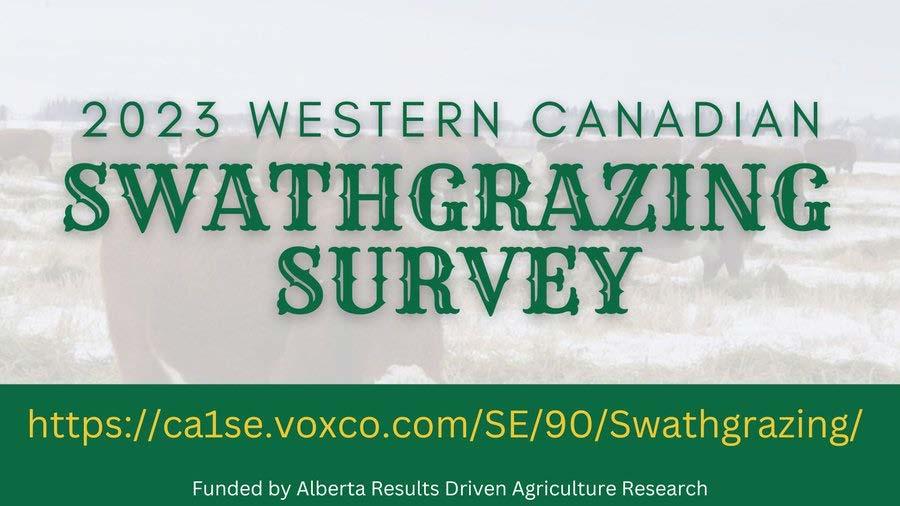 Manitoba producers - please consider completing the survey! More responses are needed.
Manitoba producers - please consider completing the survey! More responses are needed.
Time to Complete the September Agri-Climate Impact Reporter Producer Survey

(Information From Agriculture and Agri-Food Canada) The Agroclimate Impact Reporter (AIR) is a tool to help connect Agriculture and AgriFood Canada (AAFC) with people in Canada's agricultural community. AAFC relies on its network of AIR volunteers to provide information regarding agroclimate impacts on farm operations across the country.
The AIR network provides valuable and reliable data that are mapped and used in the assessment and development of policies and programs including AgriRecovery and the Livestock Tax Deferral Provision, which can provide assistance to the industry during extreme weather and climate conditions and events.
AAFC is collecting AIR reports for the month of September. For many, the past few months have been difficult due to fires, drought, heavy rains and flooding across the country. To let the Science and Technology Branch of AAFC know what the conditions are like this month in your area, please respond to one of the links below: English French
To view previous Agroclimate Impact maps, follow this link. Or see some of the other resources we produce on the AAFC Weather and Drought home page.
To learn more about AIR, follow this link. Thank you for your participation in this initiative.

Have you herd? Registration is open for the Manitoba Beef and Forage Production Conference ! Click on the program and get registered .
Call for Producer Participation in a Research Project on Bovine Anaplasmosis

What is Bovine Anaplasmosis? Economic Impacts & Disease Control
A production-limiting disease caused by the blood-borne bacterium Anaplasma marginale
Causes anemia, fever, reduced weight gain, decreased lactation and calving success, spontaneous abortions, and death
Spread by blood-contaminated equipment and tools, re-use of needles, ticks, and biting flies
Project Goals
1. Determine the occurrence of anaplasmosis within beef cattle herds in western Canada
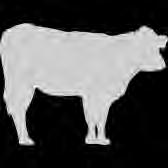
2. Survey herd management practices that may affect the risk of anaplasmosis
3. Develop a chute-side test that can detect infected cattle quickly
Between 1968 to 2000, Canada had at least one outbreak every decade
Since 2008, the number of anaplasmosis cases in Canadian cattle herds has increased
Sources of infection are often unknown. Multiple cases over the last decade suggests that anaplasmosis may become established in some regions of Canada

What we will do
1. Test beef cattle herds, ticks and flies for Anaplasma

2. Conduct an online survey to document current cattle husbandry practices
3. Use cattle blood to develop a test that detects Anaplasma marginale, but not bacteria that don’t cause anaplasmosis
The economic cost of anaplasmosis is estimated at $660 USD per animal (2021)
Vaccines are not available to prevent disease and antibiotics do not eliminate infection
Risks of disease include importation of infected animals, husbandry practices, difficulty identifying infected animals, and tick or biting fly presence
Project Outcomes
Current representation of risk factors for bovine anaplasmosis, including where anaplasmosis occurs & animal management practices
Quick and simple diagnostic tool to detect animals infected with A. marginale
Development of practical and appropriate methods for preventing the introduction and spread of anaplasmosis in beef cattle herds. Quick and effective response to infections for improved animal health and welfare
How can you get involved?
Allow us to get blood samples from your cattle once per year.
Grant us permission to access pastures to collect ticks and horseflies.
Complete a questionnaire on cattle management practices
*Resultsareforresearchpurposesonlyandwillnotbereportedto animalhealthauthorities
*Allparticipantsinbloodcollectionwillbecompensatedmonetarily
For more information or to volunteer, please contact Shaun Dergousoff, project lead (shaun.dergousoff@agr.gc.ca)
Project Researchers:
Kateryn Rochon - University of Manitoba
Neil Chilton - University of Saskatchewan
Justin Pahara - Agriculture and Agri-Food Canada
Dale Douma - Manitoba Agriculture & Resource Development

Unclassified / Non classifié
1 2 3
Funded by:










 Manitoba producers - please consider completing the survey! More responses are needed.
Manitoba producers - please consider completing the survey! More responses are needed.





